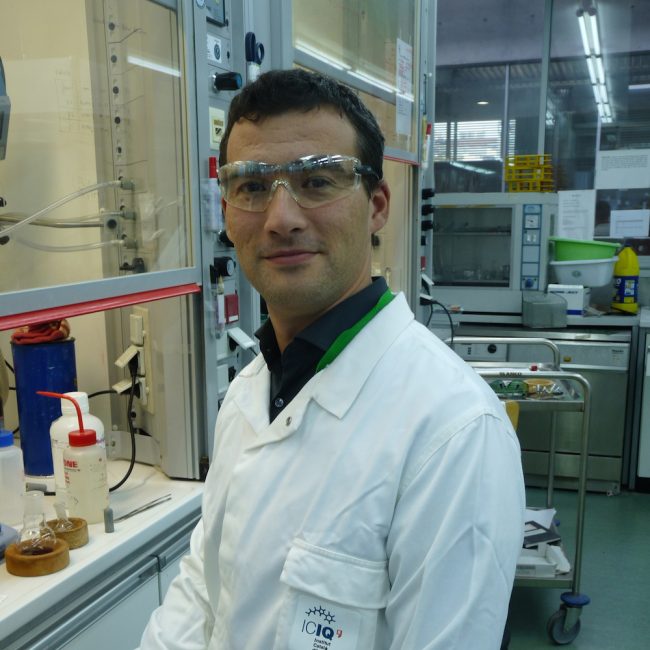Dr. Marco Noè
Prof. Miquel A. Pericàs
Supported organocatalysts and their applications in the upgrade of bioderived polyols: desymmetrisation of glycerol to obtain building blocks for fine and pharmaceutical chemicals production

From 01/02/2016 to
31/07/2016
SOCUPols - GA 658227
Cooperative nucleophilic-electrophilic catalysis by ionic liquids (IL) has been recognised as a powerful tool for sustainable
chemical transformations. Some of these transformations proved to be suitable for biomass derived chemicals upgrade. The
SOCUPols project aims at preparing novel organo-catalysts based on supported IL-like fragments for the upgrading of
biomass derived polyols such as diols and glycerol. Unlike ionic liquids and other organic salts, these heterogeneous
catalytic systems will be fully recyclable and suitable for continuous flow operation. Project development will focus on the
overall process sustainability: (a) by developing new polymer supported catalysts for environmentally friendly
transformations; (b) by using these catalysts for the selective chemical upgrading of diols and glycerol (transesterification/
acetalisation reactions) using green solvents and reactants; (c) by using carbonate formation as a CO2 fixation strategy; (d)
by modifying the catalytically active sites to carry out asymmetric transformations, thus achieving the desymmetrisation of
glycerol towards chiral synthons for fine and pharmaceutical chemistry; (e) implementing the most promising transformations
in continuous flow (CF).
This approach will be used for the design of simple and feasible strategies for the exploitation of renewable biogenic
resources by retaining molecular complexity of biomass-derived material to prepare added value molecules and materials.
This will represent a better alternative to low oxygen containing petroleum-derived feedstocks.
Through SOCUPols, Dr. Marco Noè, Experienced Researcher (ER) interested in sustainable chemistry and fine and
pharmaceutical chemical synthesis, will pursue academic career development through a specific technical training and
project managing expertise, integrated with complementary added-value non-scientific skills.
![]() This project has received funding from the European Union’s Horizon 2020 research and innovation program under grant agreement 658227
This project has received funding from the European Union’s Horizon 2020 research and innovation program under grant agreement 658227